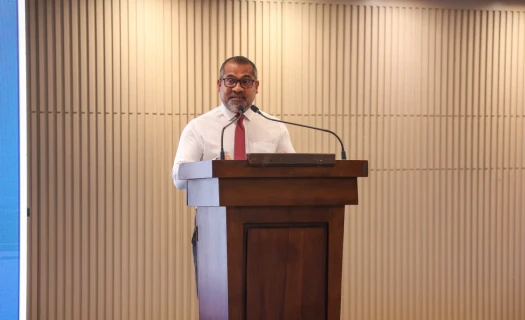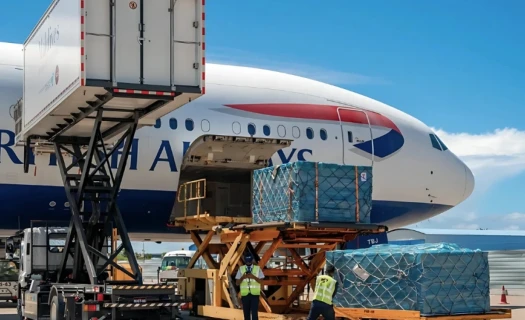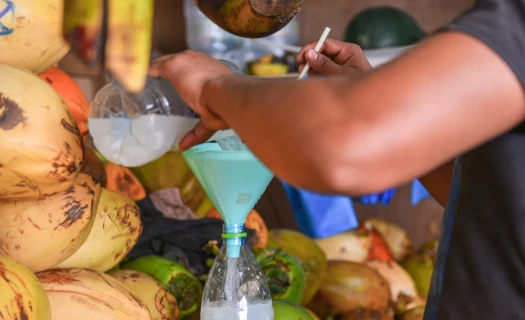Mon, 23 Feb 2026
|DHIVEHI
Far but not immune: How Middle East tensions could shake the Maldives
23 Jun 2025
|

Iranian retaliatory missile attacks on Israel on Sunday, June 15.-- Photo: Wisam Hashlamoun/Anadolu via getty images
Tensions in the Middle East have escalated sharply in recent days, with more countries becoming directly involved in the unfolding conflict. A significant development was the United States launching three missile strikes targeting Iran in support of its ally, Israel. This direct involvement by the United States has heightened fears that the crisis could expand into a broader regional or even global confrontation. As the situation worsens, no country is likely to remain untouched by its ripple effects — including the Maldives.
Although the Maldives is geographically distant from the conflict-ridden regions of the Middle East, it remains closely connected through diplomatic, economic, social, and spiritual ties. The country has consistently expressed solidarity with the people of Palestine and Iran, calling for peace, stability, and justice. However, such a principled stance may also expose the Maldives to both direct and indirect risks.
Whenever conflict erupts in the Middle East, one of the first areas to feel the impact is the global economy, particularly the oil market. As a major centre for oil production and transit, instability in the region often triggers immediate volatility in supply and pricing. Recent reports suggest that oil markets are on edge following the United States' strikes on Iran, with concerns that Iran may retaliate by cutting off its oil exports. Crude oil prices surged by more than ten per cent within hours of the escalation. For the Maldives, which relies entirely on imported oil, these price hikes create an economic burden — impacting electricity generation, inter-island transport, and the cost of basic goods.
The rise in oil prices could also disrupt supply chains and affect food security. The Maldives is heavily dependent on imported goods, with around 90 per cent of its food supply sourced from abroad. While its main import partners, including India, Sri Lanka, Malaysia, China, and the United Arab Emirates, are not directly involved in the conflict, the global ripple effects of rising fuel and shipping costs could still be felt. Even if the likelihood of direct disruption is low, these added costs may undermine the affordability and availability of essential goods.
Another area of concern is the Maldives’ largest economic sector: tourism. An escalation of the conflict in the Middle East could influence global travel trends and consumer confidence, leading to a downturn in international tourism. As witnessed during the COVID-19 pandemic, any disruption to global travel has a direct effect on the Maldivian economy. Given that the Middle East, Europe, and parts of Africa are key source markets, this presents a serious risk.
One of the most critical risks lies in national security and foreign policy. The Maldives has consistently shown solidarity with the Muslim Ummah and taken active stances on global conflicts through international platforms such as the United Nations and the Organisation of Islamic Cooperation (OIC). While these actions reflect national values and public sentiment, voicing opposition to powerful global actors may result in diplomatic pressure, economic repercussions, or geopolitical isolation. Such outcomes could force shifts in the Maldives’ foreign policy and even threaten its sovereignty.
In today’s interconnected world, a war in one region inevitably sends shockwaves across the globe. Although the Maldives is a small island nation, it is not immune to these impacts. The country must remain vigilant and be prepared to respond to emerging challenges to avoid instability. It is equally important for the Maldives to retain the flexibility to adapt its foreign policy when necessary, ensuring that national interests and sovereignty are protected as global dynamics continue to shift.








